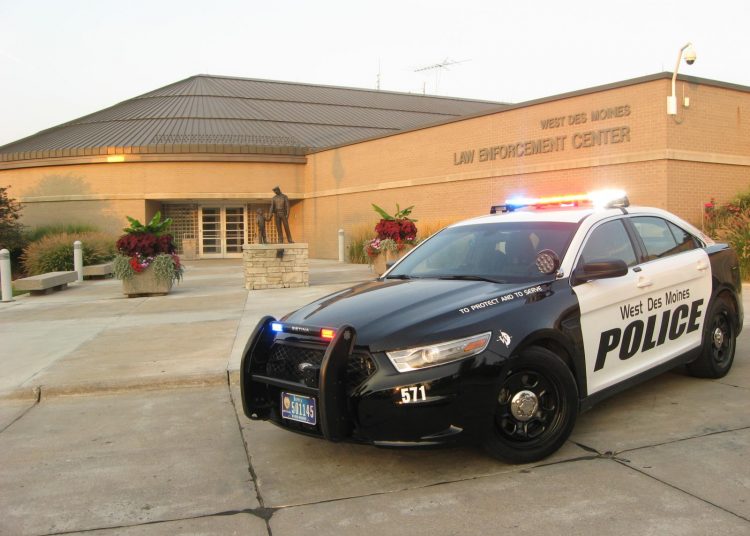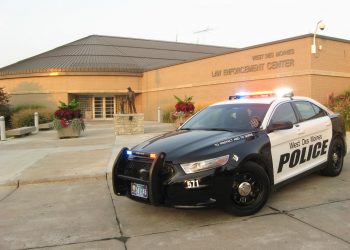(The Center Square) – The Iowa House of Representatives passed the “Back the Blue” bill in a 63-30 vote on Wednesday evening after a lengthy debate.
Among other provisions, the bill, SF 342, addresses confidentiality, qualified immunity, and workers’ compensation benefits for law enforcement. It mandates that peace officers be able to carry firearms while on duty. It also classifies – with exceptions for law and health care professionals and laser tag – pointing a laser light beam at another person if intending “to cause pain or injury” as an assault, and makes assaulting civilian employees of police or fire departments a class “D” felony. Damage or destruction to public property or damage that costs more than $1,500 to repair would become criminal mischief in the second degree. Obstructing a public way to prevent lawful use by others as part of a riot or causing bodily injury would become a class “D” felony.
State Rep. Jarad Klein, R-Keota, floor manager of the bill, said on the floor of the House that supporters of law enforcement would vote in favor of the bill.
“If you stand up and say you support law enforcement, your words will become meaningless with a ‘no’ vote. Actions speak louder than words,” he said.
State Rep. Wes Breckenridge, D-Newton, who retired from law enforcement, spoke in favor of the bill’s provisions for sick leave insurance, workers’ compensation, parity for sheriffs, pension clarity and keeping law enforcement personal contact information off public records. He said portions of the bill may also benefit recruitment and retention at law enforcement agencies.
“It’s been a struggle for many agencies over the past few years to get people to apply [for jobs] and want to get into this field,” he said.
Breckenridge added that additional clarity regarding created and increased penalties, such as when harassment charges would be appropriate, could help “to make sure we don’t have unintended consequences.”
State Rep. Jon Thorup, R-Knoxville, an Iowa State Patrol trooper, said he was on duty at protests at the west side of the Capitol last year. He said he did not think the bill’s qualified immunity provisions protect “bad cops.”
“[Bad cops] don’t last long,” he said. “They get caught doing the stupid things that they’re doing, the wrong things that they’re doing. And nobody wants to run them out more than we do.”
Rep. Ako Abdul-Samad, D-Des Moines, co-vice chair of the Iowa Democratic Black Caucus, said that there should have been more teamwork and representation of minority groups in crafting the bill, and urged Klein to include them in discussions “because we are talking life and death of human beings.”
“I would have loved for the NAACP, LULAC [League of United Latin American Citizens of Iowa], and us to be able to get representatives to sit down and work on this bill together so that we would have been able to pull some things and add some things to this bill that would’ve even made it a much better bill – that would have made it a bill that not only protected law enforcement, that it also would have made it a bill that my friend, Rep. Klein, wouldn’t have had to said that if you don’t vote yes, then you don’t support the police department. … There’s probably not a person in this room that doesn’t support the police department nor doesn’t support the community,” he said.
Klein said the Senate worked on the qualified immunity language with the Attorney General’s office and that the bill is a response to trends “that we’ve seen arise in the past year” and addresses what “law enforcement told us they need to do their jobs more efficiently and safely.”
The Iowa Senate will need to reconsider SF 342 since the bill was amended. They passed the original bill 46 to 0 on March 8.















